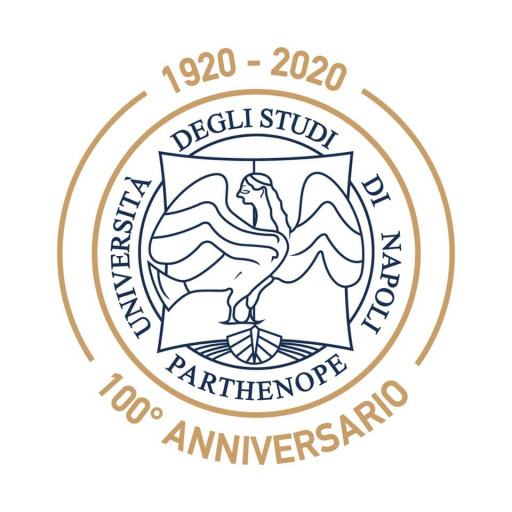Photos of university / #nuigalway
The Bachelor of Science in Earth and Ocean Sciences at the National University of Ireland offers a comprehensive and interdisciplinary approach to understanding the complex systems that shape our planet. This program is designed to provide students with a strong foundation in the fundamental sciences, including geology, oceanography, environmental science, and geophysics, equipping them with the knowledge and skills necessary to analyze the Earth's processes and their impact on society. Throughout the course, students will engage in both theoretical coursework and practical fieldwork, allowing them to develop critical thinking, problem-solving abilities, and hands-on experience in sampling, data analysis, and laboratory techniques. The curriculum covers key topics such as plate tectonics, marine ecosystems, climate change, natural hazards, resource management, and sustainable development, emphasizing the importance of environmental stewardship and responsible resource utilization. Students will have opportunities to participate in research projects, field excursions, and internships that enhance their understanding of Earth and ocean systems in real-world contexts. The program also aims to foster interdisciplinary collaboration, encouraging students to work across scientific disciplines and integrate diverse perspectives to address global environmental challenges. Graduates of this program are well-prepared for careers in environmental consulting, resource management, research, policy development, and further academic study. By choosing Earth and Ocean Sciences at NUI, students embark on a dynamic educational journey that combines scientific inquiry with practical application, preparing them to contribute meaningfully to the understanding and preservation of our planet.
Year 1
- Introduction to Earth and Ocean Sciences
- Plus three from the following:
- Biology
- Chemistry
- Computer Science
- Physics
- Mathematics
- Applied Mathematics
Year 2
Full Subjects
- Earth Sciences II
- Plus one from the following:
- Botany
- Chemistry
- Physics
- Applied Mathematical Science
- Zoology
Full Subjects
- Introduction to Oceanography
- Plus one choice from a range of Science modules
Year 3
- Fundamental Skills in EOS
Three or four of the following:
- Environmental Geoscience
- Marine Geoscience
- Igneous and Metamorphic Petrology
- Sediments and the Biosphere
- Plus a choice from a range of Science modules
Year 4
- EOS Field project/Research Survey
- EOS Field trip to Anglesey
- Three EOS Advanced modules
Requirements
- Certificate of Secondary Education and an acceptable grade from a recognised Foundation programme.
- or First year of Bachelor degree/Bakalvr
- Minimum GPA 3/Satisfactory
- All applicants, whose first language is not English, must present one of the following qualifications in the English language. IELTS 6.5. TOEFL 88.
- The completed Non-EU Undergraduate Application Form
- A copy of your Passport
- A Personal Statement (typed) of no more than 800 words outlining your academic interests, sporting and/or cultural interests and your reasons for wanting to study at NUI Galway. You may also include aspects of your academic career that are not necessarily reflected in your application.
- Two sealed Letters of Recommendation, ideally from a teacher and/guidance counsellor or someone who knows you personally.
- Minimum HC3 in two subjects and passes in four other subjects at H or O Level in the Leaving Certificate including: Irish, English, Mathematics, a laboratory science subject (i.e. Chemistry, Physics, Biology, Physics with Chemistry (joint) or Agricultural Science) and any two other subjects recognised for entry purposes.
The Earth and Ocean Sciences program at the National University of Ireland offers a range of financing options to support students throughout their studies. Tuition fees are subject to change and vary depending on the student’s status as local, EU, or international, with detailed information available on the university’s official website. Scholarships are available for outstanding students, including automatically awarded grants based on academic performance and competitive scholarships for specific research areas or extracurricular achievements. The university also provides financial aid packages and bursaries for students demonstrating financial need, with application procedures outlined on the university’s financial aid portal. Additionally, students may be eligible for government grants and loans, such as student aid schemes provided by the Irish government, which can help cover tuition and living expenses. Part-time work opportunities are available on campus and within the local community, allowing students to supplement their income while balancing coursework. The university occasionally offers sponsorship and partnership programs with industry stakeholders, providing pathways for funded research projects and internships that include financial support. International students, in particular, should consult the international office for information about visa-related financial requirements and any available support programs. It is recommended that prospective students review the specific eligibility criteria and application deadlines for each funding source early in the admission process. The university’s dedicated financial aid office offers personalized advice and assistance, helping students identify the most suitable funding options for their situation. By combining various scholarships, grants, loans, and employment opportunities, students are encouraged to plan their finances carefully to ensure they can focus on their academic and research pursuits within the Earth and Ocean Sciences program.
The Bachelor of Science in Earth and Ocean Sciences at the National University of Ireland offers students a comprehensive understanding of the Earth's physical processes and the dynamics of ocean systems. This programme combines principles from geology, marine science, and environmental studies to provide students with a multidisciplinary perspective on the natural world. Throughout the course, students gain foundational knowledge in earth sciences, including mineralogy, petrology, sedimentology, and geophysics, alongside oceanography, marine ecology, and climate science. The curriculum emphasizes both theoretical understanding and practical skills, with laboratory work, field studies, and research projects integral to the learning process. Students have opportunities to engage in field trips to diverse geological and marine environments, enhancing their applied skills and fostering an awareness of environmental challenges facing our planet. The programme encourages critical thinking, analytical skills, and scientific communication, preparing graduates for careers in environmental consulting, resource management, marine conservation, or further academic research. The department collaborates with industry partners and research institutes, providing students with internship opportunities and exposure to real-world scientific applications. Graduates from the programme are equipped to contribute to sustainable management of Earth's resources, assess environmental risks, and participate in scientific investigations that inform policy-making. The programme also emphasizes the importance of interdisciplinary approaches, integrating knowledge from biology, chemistry, and physics to address complex global issues such as climate change, ocean acidification, and natural hazard management. Students are supported by experienced faculty members dedicated to mentoring and guiding their academic and professional development. Overall, the Earth and Ocean Sciences programme at the National University of Ireland prepares students to become informed scientists capable of making meaningful contributions to understanding and protecting our planet’s earth and ocean systems.








